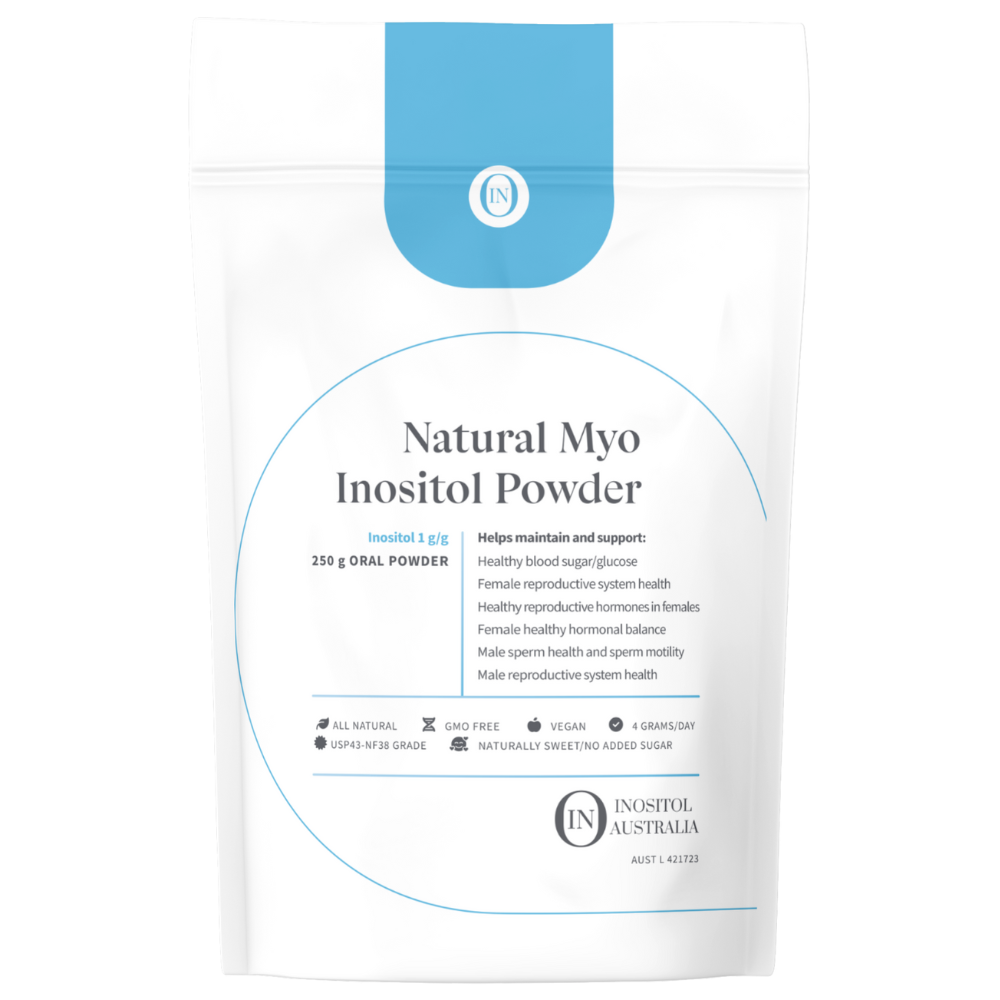
Being diagnosed with PCOS can provide some relief by giving you a better understanding of your own body. From hormonal changes to mental struggles, PCOS, or polycystic ovarian syndrome, can cause significant physiological changes in your body.
A major worry for anyone who has PCOS would be the implications for fertility. Since PCOS targets the reproductive system, there is a chance that individuals who have PCOS have fertility issues. However, PCOS is not a death knell for fertility. Many individuals with PCOS can still get pregnant quite naturally.
If you or someone you know has recently been diagnosed with PCOS or are trying to get pregnant but have PCOS, know that you are not alone, and there are numerous natural ways to get pregnant even with PCOS.
What is PCOS?
Polycystic ovarian syndrome, or PCOS, is a common hormonal disorder that affects 1 in 5 women globally. According to the CDC, as many as 5 million women in the United States might have PCOS, although this number is likely greater due to undiagnosed cases.
Having PCOS does not mean that you are destined to have fertility issues. PCOS affects more than just the women’s reproductive system, and it also affects insulin receptivity and cognitive health.
Women with PCOS will likely show three common symptoms:
- Irregular periods or not having a period for a few months
- Small cysts on the ovaries
- Higher than normal levels of androgens, which might cause things like excessive facial hair or body hair, acne, and thinning scalp hair
Doctors are not sure what causes PCOS, but it might be tied to genetics, weight, and insulin resistance.
Additionally, having PCOS can increase your risk of contracting other conditions, like type-2 diabetes, metabolic disorder, cardiovascular issues, heart disease, gestational diabetes, sleep apnea, stroke, and high levels of bad cholesterol.
Knowing that you have PCOS, you must speak with your primary doctor to discuss whether treatment is necessary and what steps can be taken to reduce symptoms, improve your overall health, and increase fertility if that is your concern.
PCOS and Fertility
PCOS is directly tied to some fertility issues because it targets the ovarian cycle. A woman with PCOS will have fewer periods because they are ovulating less frequently. With PCOS, a woman’s ovaries are larger than normal. However, these larger ovaries might have small cysts on them that contain eggs.
A woman with PCOS will produce more androgens than normal. In women without PCOS, these androgens would eventually be converted into estrogen, which is one hormone that encourages regular egg production. But with PCOS, the androgens aren’t converted to estrogen as often, so the ovarian cycle is elongated.
This does not mean that PCOS stops fertility. Because the ovulation cycle is longer – around two to four months as opposed to every month – there are fewer chances of sex occurring during ovulation, when the egg is receptive to the sperm. So, having PCOS does not mean your body is any less able to get pregnant. Instead, it just becomes a bit trickier identifying when your body can get pregnant.
PCOS is completely treatment, and women do not need to go through IVF procedures, although it does help to have medical support in tracking the ovulatory cycle and planning fertility. A doctor can also rule out other complications, like fibroids, blocked fallopian tubes, and non-PCOS related fertility issues.
Natural Ways to Get Pregnant With PCOS
Naturally, if you’re trying to conceive and are coming up against your PCOS condition, then there are natural ways to treat PCOS to improve the ovarian cycle and improve fertility.
One way of regulating the ovarian cycle may be in controlling the body’s insulin resistance. If you have PCOS and have insulin resistance, the excess insulin may disrupt the hormones and interfere with ovulation.
Consider implementing a weight loss program and adopting a healthy lifestyle, if you haven’t already. Improving your weight and eating healthier may improve PCOS symptoms, regulate insulin resistance, and moderate the ovarian cycle.
Other than improving your lifestyle, some herbs and supplements have been shown to improve the chance of fertility in individuals who have PCOS. Some evidence suggests that the herb Cimicifuga racemosa (black cohosh) might increase pregnancy rates. Studies suggest that taking this herb alone and in conjunction with clomiphene has shown signs of improvement.
Inositol has been shown as the most effective supplement for improving the likelihood of fertility for PCOS individuals. This is because of the supplement’s regulatory nature. By regulating the ovarian cycle, there are more chances for fertility to occur. Individuals can then begin tracking their ovarian cycle, something which is notoriously difficult to do if you have PCOS. Side effects are mild, including mild stomach discomfort.
When taken with folic acid, there is an improved chance of fertility (although don’t take a folic acid and Inositol combined supplement). Additionally, Vitamin D has been shown to increase ovulation and make the menstrual cycle more regular. Be careful when taking supplements, and always speak with your physician. Some herbal supplements might have side effects or might be affected by another supplement. You might also need to be taking another medication like metformin or clomiphene for the supplement to work. Luckily, fertility supplements like Inositol don’t require another medication.
PCOS and Fertility Treatments
If you have PCOS and are trying to conceive, know that you have plenty of options to consider. Be sure to consider all of these options with your primary care doctor. If you are interested in taking an herbal supplement, discuss this treatment in tandem with improved lifestyle choices.
There are additional, non-natural treatments for fertility. For example, Metformin is an extremely popular medication that regulates insulin by decreasing the amount of insulin in the bloodstream. Because of this, Metformin has been shown to encourage ovulation, increasing fertility changes, and helping individuals lose weight.
Clomiphene and letrozole have also been found to induce ovulation. This is because they affect estrogen (i.e., Clomiphene blocks the body’s response to estrogen, and letrozole suppresses the production of estrogen). By limiting estrogen, the pituitary gland is told to make more follicle-stimulating hormone (FSH), which encourages the growth of follicles, which contain eggs. As with medications, there are side effects, so if you can avoid taking medications like Clomiphene and letrozole, it would be a more pleasant experience.
Many issues related to fertility are linked with timing. Ovulation is set to occur regularly, but if you have PCOS, then hormonal factors want to disrupt these cycles. If you know your ovulation schedule and your reproductive cycle is otherwise healthy, supplements might not be typical. Consider tracking your basal body temperature by taking your temperature daily before getting out of bed each morning. You can also take at-home ovulation tests that measure the amount of luteinizing hormone (LH) you are producing. With these two methods, you may be able to identify your fertile window and the times in which your body ovulates.
With lifestyle changes, like weight loss, and supplements that stimulate or regulate ovulation, you will find it easier to get pregnant. Of course, there are also surgical options such as in vitro fertilization (IVF). However, try to do as much research as possible and test to find a more natural alternative.
Inositol is researched and highly recommended as an effective and natural way of improving fertility. Consider the powder form of this supplement, sold by Inositol Australia, which can improve your overall fertility.
-
Sale!
Natural Myo Inositol for PCOS / Hormonal Balance
$ 36.50 – $ 204.00 Select options This product has multiple variants. The options may be chosen on the product page -
PCOS Starter Bundle
$ 73.00 Add to cart -
Morlife Collagen Protein Water – 400g – Tropical or Berry
$ 54.95 Select options This product has multiple variants. The options may be chosen on the product page
Resources:
CDC. (2020). PCOS (Polycystic Ovary Syndrome) and Diabetes. Retrieved Dec 4, 2020.
Ciotta, L., Stracquadanio, M., Pagano, I., Carbonaro, A., Palumbo, M., & Gulino, F. (2011). Effects of myo-inositol supplementation on oocyte’s quality in PCOS patients: a double blind trial. Eur Rev Med Pharmacol Sci, 15(5), 509-14.
Emekçi Özay, Ö., Özay, A. C., Çağlıyan, E., Okyay, R. E., & Gülekli, B. (2017). Myo-inositol administration positively effects ovulation induction and intrauterine insemination in patients with polycystic ovary syndrome: a prospective, controlled, randomized trial. Gynecological Endocrinology, 33(7), 524-528.
Inositol Australia. (2020). Taking Inositol For PCOS. Retrieved Dec 4, 2020.
Inositol Australia. (2020). The PCOS Diet – What Should I Eat With PCOS?. Retrieved from Dec 4, 2020.
Kar, S. (2012). Clomiphene citrate or letrozole as first-line ovulation induction drug in infertile PCOS women: A prospective randomized trial. Journal of human reproductive sciences, 5(3), 262.
Mayo Clinic. (2020). Basal body temperature for natural family planning. Retrieved Dec 4, 2020.
NHS. (2020. Polycystic ovary syndrome – Symptoms. Retrieved Dec 4, 2020.
Papaleo, E., Molgora, M., Quaranta, L., Pellegrino, M., & De Michele, F. (2011). Myo-inositol products in polycystic ovary syndrome (PCOS) treatment: Quality, labeling accuracy, and cost comparison. Eur Rev Med Pharmacol Sci, 15(2), 165-74.
Raffone, E., Rizzo, P., & Benedetto, V. (2010). Insulin sensitiser agents alone and in co-treatment with r-FSH for ovulation induction in PCOS women. Gynecological Endocrinology, 26(4), 275-280.
Thatcher, S. S., & Jackson, E. M. (2006). Pregnancy outcome in infertile patients with polycystic ovary syndrome who were treated with metformin. Fertility and sterility, 85(4), 1002-1009.





